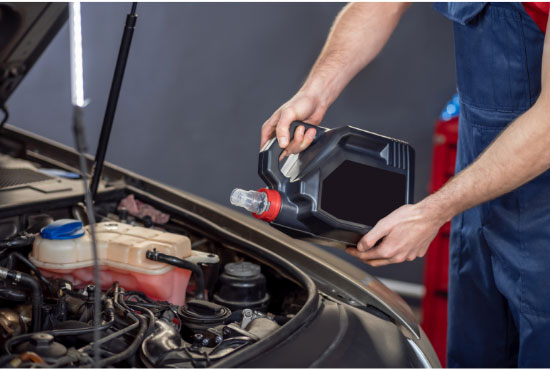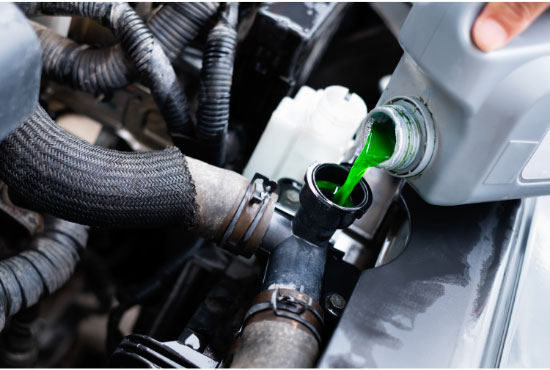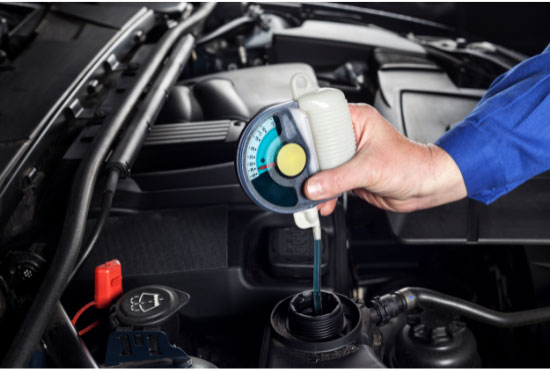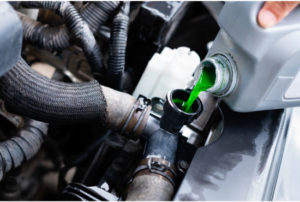As a Jeep mechanic, I frequently get asked if Dex-Cool is best for Jeeps. The best coolant for Jeeps is the one recommended in the owner’s manual.
The following guide will help you to understand what Dex-Cool is and whether it can be used in your vehicle.
What is Dex-Cool?

Dex-Cool is an extended life coolant that is silicate and phosphate-free. It reduces the possibility of corrosion or breakdown of metal parts. It is a longer-lasting coolant and does not have to be changed yearly, or twice yearly.
Is Dex-Cool an Orange Antifreeze?
Dex-Cool is primarily orange in color. The color of the antifreeze does not mean anything anymore.
At one time coolants were colored so you could identify the proper formula for your vehicle. The average antifreeze was green. Today product color standards no longer apply so buying a coolant because it is orange, yellow, or green will not ensure that you have purchased the proper substance.
Will Using Dex-Cool In My Jeep be Okay?
If the manufacturer calls for a Dex-Cool type antifreeze then it can be used in your Jeep. Each vehicle engine requires a different coolant.
Never mix a Dex-Cool coolant with ordinary antifreeze. Over time a mixture of regular antifreeze and Dex-cool will go through a chemical reaction that causes them to form a gel. The gel will not flow through the system and eventually, your engine will be severely damaged.
Be Certain of The Coolant Requirements of Your Vehicle
To make sure that you keep your engine protected you need to be sure to use the coolant it was designed to use. The manufacturer suggested coolant will be listed in the owner’s manual of the vehicle.
If you no longer have the owner’s manual you can call a local Dodge or Jeep Dealership and ask them to advise you on what antifreeze you should be using. Is your jeep smell like antifreeze? We have a complete guide on what causes a Jeep to have a strong antifreeze smell.
How Often Do You Add Coolant?

New technology has allowed manufacturers to create coolants that can last as long as five years. In mileage terms, the newer coolants can last about 100,000 miles. The original antifreeze substances had to be changed every 26,000 to 36,000 miles.
The newer coolants do last a lot longer than the original but you should establish a routine of changing out the coolants every two to three years. Some makes and models have a recommendation that you change or flush the coolant out every 30,000 miles.
You must consider the extreme temperatures your vehicle is exposed to and how you drive the vehicle to determine how often to make the change. If you drive off-road terrain often or put the engine under a lot of strain rock-crawling, or drive long distances in really hot or cold temperatures then your changing schedule will be different from a casual driver.
Learn to Check Your Coolant Level

There is a reservoir on the side of the engine that holds coolant. You can look at the side of this reservoir and quickly see if your coolant level is at the full mark. If it is not, then you may need to add more coolant to the reservoir, or check your engine to see if you have any leaks,
How to Properly Add New Coolant
Do not simply open the radiator cap and pour some more coolant into the system.
Drain the old coolant out of the system, and then use coolant flush. After the coolant flush has cleaned out the system you can fill the system with the proper amount of the proper coolant type.
If you simply pour some additional coolant in on top of the existing coolant then you are mainly using coolant that is no longer able to protect your vehicle. You need to get rid of the old and start over with all new to get maximum protection.
People Also Ask about Best Coolant for Jeep
Do Jeeps Need Special Coolant?
Yes. The coolant required is specific to the year and model of the vehicle.
Is Dex-Cool a Good Engine Coolant?
Yes, but it does not work well with traditional anti-freeze.
Will Using The Wrong Engine Coolant Damage My Engine?
Yes, the wrong coolant can allow corrosion to build up in the water pump, radiator, and hoses.
Final Thoughts
The coolant used in your vehicle stops high temperatures and low temperatures from damaging the engine. For the most protection, you need to use the coolant recommended in your owner’s manual. Never change coolant types without consulting a licensed and certified mechanic.

